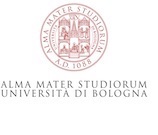DAVID NEMER
|
 |
|
This seminar is an examination of the dynamics of various forms of oppression afforded by digital technologies in the Global South. It begins with an analysis of different cases where digital technology was imposed on countries in the Global South as the silver bullet for social and economic progress. The seminar moves on to look at the ways that these technologies are locally appropriated and how they are used as tools to amplify domestic oppression such as sexism, classism, and LGBTQphobia. Finally, it analyzes how social media is currently serving as a largely hidden platform for digital colonialism and used to promote oppressive state propaganda. We will also focus on the infrastructure and apparatus used to create, spread, and consume misinformation and the ways that these practices are affording the radicalization of right-wing civilians and eroding democratic institutions. David Nemer is a Brazilian assistant professor, author, ethnographer, and researcher specialized in information anthropology. He works in the Department of Media Studies at the University of Virginia. Nemer is the author of the book Favela Digital - The Other Side of Technology and one of the references in promoting broadband internet access in marginalized communities.[2] He has also conducted work on internet access in Cuba and Appalachia (Eastern Kentucky). Working in the areas of ICT4D, community informatics, and science and technology studies, he is associate editor of the Journal of Community Informatics, and review editor of the journal Tapuya: Latin American Science, Technology and Society. In the field of ICT4D, Nemer helped to lead its largest conference, ICTD, in its 10th edition. His research has been supported by a variety of sponsors including Google, Microsoft Research, United Nations University, Fraunhofer Institute, Confucius Institute, and the German Academic Exchange Service. From Fall 2015 through the summer of 2019 he worked in the School of Information Science at the University of Kentucky. During Brazil's presidential elections of 2018, Nemer was one of the researchers who led the investigation related to the production and distribution of fake news on social media. His research focused on pro-Bolsonaro WhatsApp groups and Nemer identified the human infrastructure, based on 3 groups of users, that produced and spread the misinformation. Nemer's most recent findings have highlighted how WhatsApp has served as a space to radicalize the right in Bolsonaro’s Brazi
|



